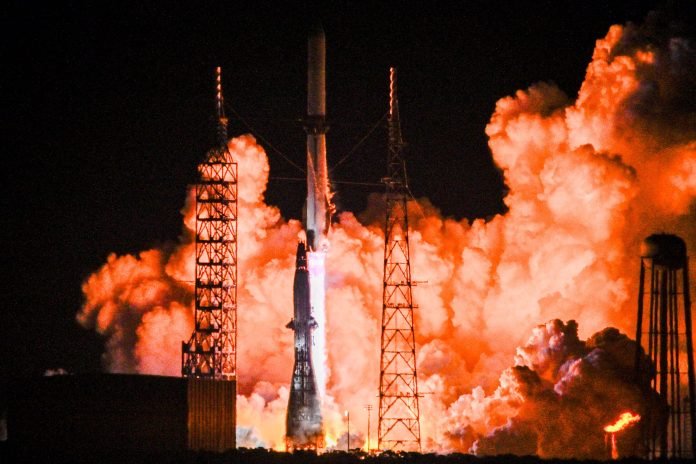Washington: The US Space Force this week revealed a new model for upgrading its East and West Coast ranges, shifting upfront costs that used to be borne by the government to the commercial launch companies that rely on the infrastructure.
Under a new $4 billion Space Force Range Contract, which will be managed by advisory and consulting firm Jacobs Technology, commercial launch firms will place task orders and pay directly for various services required to support their launches. That includes things like costly maintenance, sustainment, operations and systems engineering for aging range infrastructure.
“Historically, the government has fronted these costs,” Brig Gen Kristin Panzenhagen, Space Launch Delta 45 Command and Eastern Range Director, said in a statement. “The ability of our commercial partners to directly fund their own task orders will lessen the financial and administrative burden on the government and is in line with Congressionally mandated Financial Improvement and Audit Readiness requirements.”
As commercial space launch demand has grown in recent years, the Space Force’s ranges at Cape Canaveral Space Force Station in Florida and Vandenberg Space Force Base in California have become the world’s busiest launch hubs. The ranges have seen a 30% annual increase in business for several years in a row and conducted 114 missions in 2024, the bulk of them from Cape Canaveral. Those launch rates have put strain on range infrastructure, and the service has been weighing options for addressing the issue. The Space Force is investing nearly $1.4 billion through 2028 to widen roads to accommodate larger rockets, improve airfields, secure communication lines and increase power redundancy — part of an effort called Spaceport of the Future, which aims to run the ranges more like a commercial airport.
Shifting to this new cost construct, the service said, also supports that goal. “This contract will transform the way operations, maintenance, sustainment, and systems engineering and integration services are provided at the Eastern and Western Ranges, to enable their eventual transformation into efficient, high-capacity multi-user spaceports,” the service said in the statement.
The service has been working with Congress in recent years to get approval for various policy changes to enable the spaceport transition. One such change allows the Space Force to collect fees from companies for the indirect costs of using its ranges, similar to what a port authority might impose on its users. In the Fiscal 2024 National Defence Authorisation Act, lawmakers passed a provision requiring launch firms to reimburse the Defence Department for those costs. The bill also included language directing the Space Force to consider options for commercial providers to perform “day of” launch services, which includes things like payload processing and integration.




